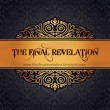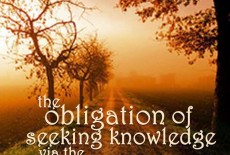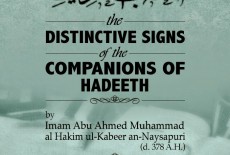The practise of reciting Qur`an, or some dhikr and tasbeehat either afront or behind the funeral procession is not proven at all . Not from the Messenger of Allah (sallalahu `alayhi wa sallam) , not from the Sahaaba, the Taba`een, the 4 Imams or the salafus saliheen. This is thus a bid`ah
This is contrary to making du`a for the deceased. So do not confuse the two please.
Imam at-tahawi al-Hanafi rahimahullah says :
ولا یرفع صوتہ بالقرائۃ ولا بالذّکر، ولا یغتر بکثرۃ من یفعل ذلک، وامّا ما یفعلہ الجھّال فی القرائۃ علی الجنازۃ من رفع الصّوت و التّمطیط فیہ فلا یجوز بالاجماع، ولا یسع أحدا یقدر علی انکارہ أن یسکت عنہ ولا ینکر علیہ، وعلیھم الصّمت و نحو ذلک کالأذکار المتعارفۃ بدعۃ قبیحۃ.
And do not raise your voices with the qir’aat and adhkaar you indulge in (during the funeral processions) and do not be deceived by the great numbers of those who do these (acts). [1] As for what the ignorants do by raising their voice in the qir’aat during the funerals and elongating it then this is not permissible with the consensus which no one has the audacity or power to oppose . So be silent and do not deny (that it is haraam). Upon the people is to remain silent (or make du`a in their heart) and to indulge in adhkaar like this is a disgusting innovation
[Ref: Haashiya at-tahawiyyah 332]
[1] a proof that majority is not always on the haq
Turkmani Hanafi (rahimahullah) said :
ومن البدع ما یفعل بین یدی المیّت من قرائۃ و ذکر و حمل خبز و خرفان، الکلّ لا یرضی الواحد الدّیّان.
And from the innovations (of funerals) is what they do from the qir’aat and adhkaar and carrying bread and (baby) goats . No religious man will ever be pleased with these .
[Ref: اللمع في معرفة الحوادث والبدع . للتركماني الحنفي 232]
And he also says :
وکذلک الذّکر جھرا یکرہ فعلہ خلف الجنازۃ ، ولیس فیہ أجر للذّاکر ولا للمیّت.
And likewise to recite loudly behind the funeral is severely disliked and there is no reward in such adhkaar neither for you nor for the deceased.
[Ref:اللمع 217]
It says in one of the vast and magnumous works of Hanafi books
“جنازے کے ساتھ جانے والوں کو خاموش رہنا واجب ہے اور بلند آواز ذکر کرنا اور قرآن پڑھنا مکروہ ہے ،اگر اللہ کا ذکر کرنا چاہیں تو اپنے دل میں کریں۔”
” And those who go along with the funeral , it is wajib upon them to remain silent. And indulging in loud dhikr or qur`an recital is severely disliked. If one needs to do dhikr then he should do it in his heart (inaudibly)
[Ref: Fataawa `Alamgiri of Sultan Aurangzeb rahimahullah (1/172); Fatawa qadhi Khan (1/92); Jaa al-Haq of Na`emi barelvi 1/408]
Another Hanfi Imam says :
رفع الصّوت بالذّکر وقرائۃ القرآن وقولھم کلّ حیّ یموت و نحو ذلک خلف الجنازۃ بدعۃ.
And the raising of the voices for adhkar and qir’aat and their statements such as ” every life shall taste death” behind the funeral are all innovations
[Ref: فتاویٰ سراجیہ: ۲۳]
Muhammad ruknud-deen barelvi says :
“سوال : جولوگ جنازہ کے ہمراہ ہوں ان کوکلمہ طیبہ راستہ میں پڑھنا کیسا ہے ؟
Questioner : What is the status of the carriers of the funeral to recite kalma tayyaba during the procession?
جواب: پکار کر پڑھنا تو مکروہ ہے ، دل میں اگر پڑھیں تو مضائقہ نہیں ، بہتر خاموشی ہے ۔(عالمگیری)” (رکن دین : ۲۰۶)
Answer : To recite it out loud is severely disliked however reciting it in the heart does not seem to be troublesome. It is better to be silent
[Ref: `Alamgiri > Rukn Deen 207]
Ahmad yaar na`eemi gujrati barelvi said :
“جن فقہاء نے میت کے ساتھ ذکر بالجہر کو مکروہ فرمایا، ان کی مراد مکروہ تنزیہی ہے ۔” (جاء الحق ؛ ۴۱۰/۱)
The fuqaha who deemed audible recitation during funeral procession as makrooh, did so with the intention of a cautionary dislikement (and not the marook tahreemi i.e one that equals prohibition).
[Ref: Jaa al-Haq 1/410]
In reply to this we quote Ibn Nujaym al-Hanafi rahimahullah who said :
وینبغی لمن تبع الجنازۃ أن یطیل الصّمت ویکرہ رفع الصّوت بالذّکر وقرائۃ القرآن وغیرھما فی الجنازۃ و الکراھۃ فیھا کراھۃ تحریم.
And it is preferred for those following the funeral to obtain lengthy silence and it is disliked to raise voices with adhkar or qir’aat or other than that and the dislike here is the dislike of prohibition
[Ref: al-Bahr (2/199]
Hafidh Nawawi rahimahullah said :
Know that the right and successful madhab , upon which the salafu radhiallahu `anhum have also practised upon , is to remain silent while walking or carrying the funeral. To not raise the voices for qir’at and adhkar and other than that. The wisdom behind it is that it contents the heart and helps (contemplate and ) remember that which is related to the funeral (i.e aakhirah) . And this is what is required from such a situation and this is the Haq. Do not be deceived by the great numbers of those who oppose this (haq).
[Ref: Al-Adhkar 137]
Question to Imam nawawi : Some ignorant people here in Dimishq elevate and elongate , raising their voices chants that include wordings beyound the kalimat and they indulge in qir’aat with it. Is this is a preferable practise?
Answer : As is apparent this is extremely ugly and a detested act. There is a consensus among the scholars of it being prohibited. Mawardi and many other Imams have narrated an Ijmaa` on its prohibition. The ruler of the time should warn and penalize (or punishe) these people and make them repent. And every one who holds the power and stature to oppose this (innovation) should do so.
[Ref: Fataawa an-Nawawi 37]
Shaykh ul-Islam Ibn Taymiyyah (rahimahullah) said :
The practise of raising the voices with chants and other than that is the practise of the people of the book and the foreigners (such as Hindi Mushrikeen or others of his time [1] ) but (unfortunately) even many Muslims are indulged in this (non islamic) practise
[Ref: al-Iqtidaa siratil-Mustaqeem 1/317]
[1] Even till date in India, a funeral carried of a hindu is carried along with chants, sermons and other audible speeches.
Ibn Nahhas (D 814 A.H) as-shaf`ee rahimahullah said :
… And even in the qir’at if there is no elevation and rhythmic pronouncements, yet this is a disliked innovation for neither did the Prophet sallalahu `alayhi wa sallam nor anyone among the salaf ever did something like this and like this the adhkaar during funerals are an innovation
[Ref: تنبیہ الغافلین عن اعمال الجاھلین و تحذیر السالکین من افعال الھالکین: 481]
The Evidences of Ahlul Bid`ah
1) Ibn `Umar (radhiallahu `anhu) is reported to have said :
لم یکن یسمع من رسول اللہ ﷺ وھو یمشی خلف الجنازۃ الا قول لا الہ الا اللہ مبدیا وراجعا.
that he never heard the Prophet (sallalahu `alayhi wa sallam) say other than Laa ilaaha Ilallah while going towards or returning from a funeral
[Ref: Al-Kaamil of Ibn `Adi 1/279; 4/1708]
Answer :
This is a fabricated narration. Ahmad yaar na`emi barelvi objects saying
“Even if this narration is weak, then it can be accepted in fadhail of deeds”
Reply :
a) the narration is not weak but fabricated
b) the narration is about ahkaam i.e if dhikr is permissible or not and not about the virtue of indulging in the dhikr
c) Here the raising of voices along with funeral in a congregation is not proven from this narration
2)
٭ عن عبداللہ بن محمد بن وھب، حدّثنی یحیی بن محمد بن صالح ، حدّثنا خالد بن مسلم القرشی ، حدّثنا یحیی بن أیوب عن یزید بن أبی حبیب عن سنان بن سعد عن أنس ، قال ؛ قال رسول اللہ ﷺ ؛ أکثروا فی الجنازۃ قول لا الہ اّلا اللہ.
Anas (r.a) is reported to have said that the Messenger of Allah (sallalahu `alayhi wa sallam) said strive in reciting laa ilaaha illallah during funerals
[Ref: Musnad ad-daylami (1/1/32)]
Answer :
Shaykh Albaanee said in Silsilah ahadeeth adh-dha`eefah (1/288) that this is a weak narration and he said that below yahya ibn ayyoub he couldn’t find the details of those narrators
[Ref: Summarized and Translated from ماہنامہ السنہ جہلم ، شمارہ نمبر 6 ، اپریل 2009]







